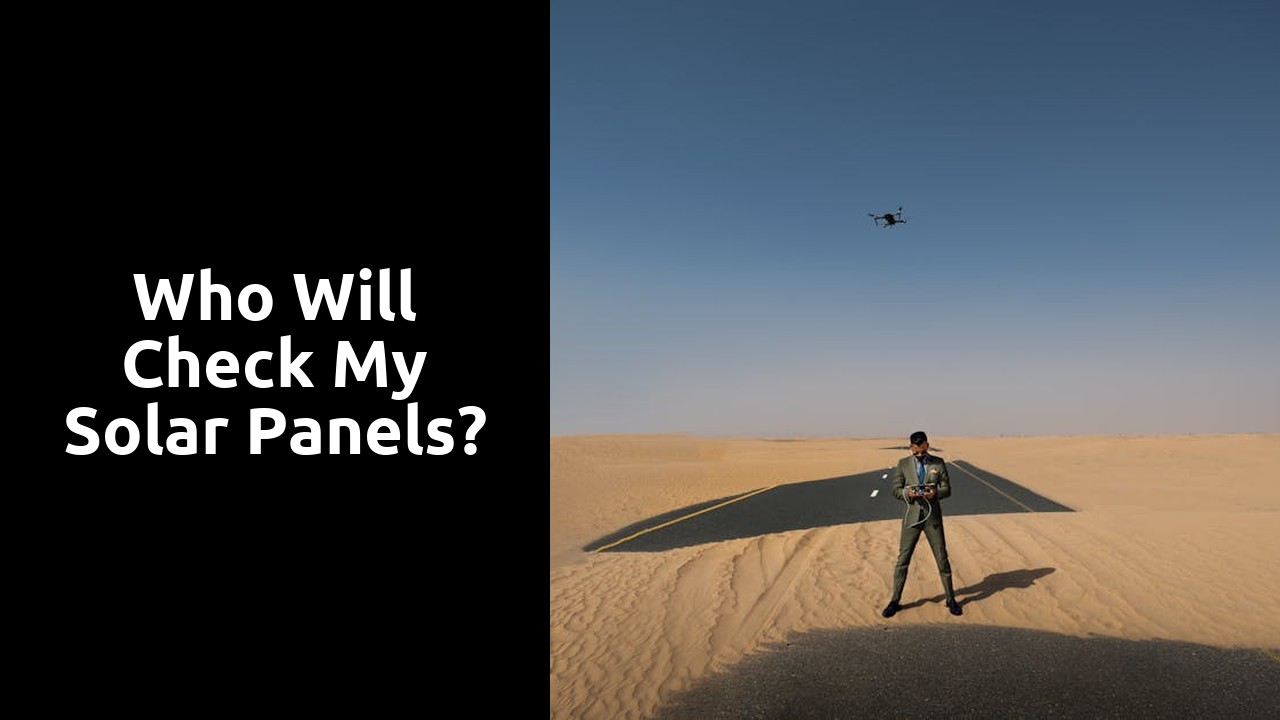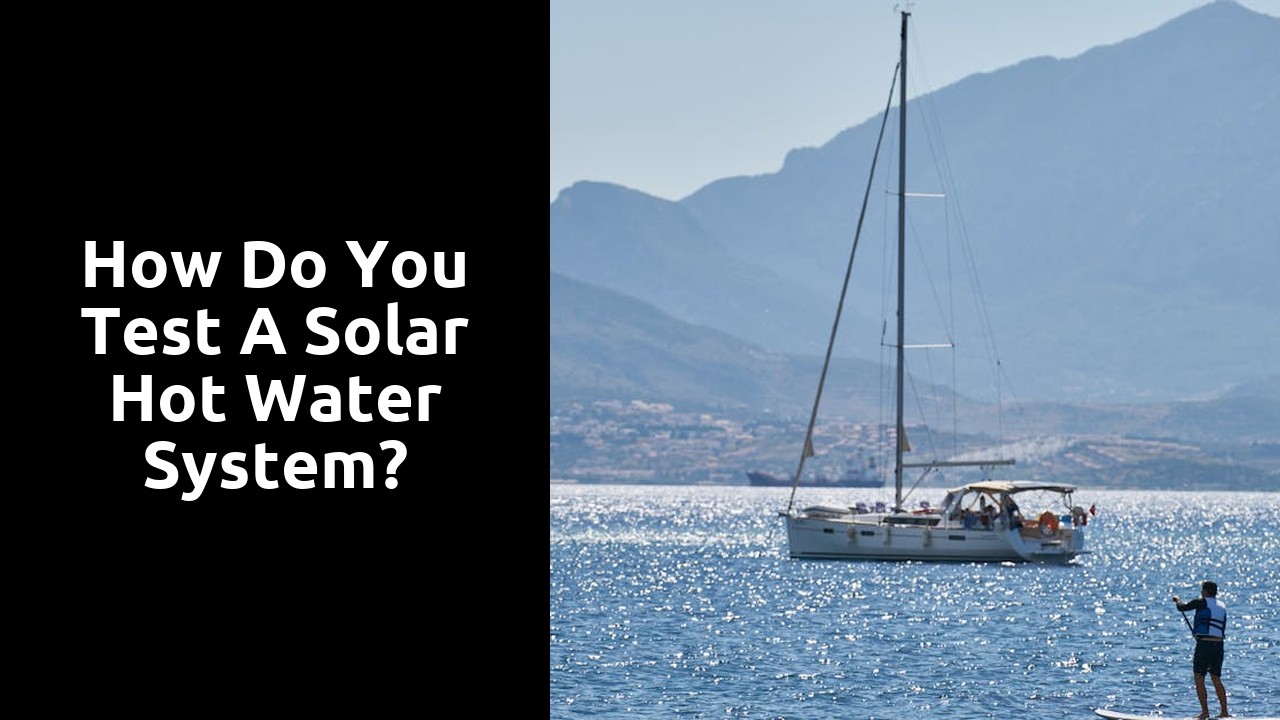
Common Problems Found During Solar Panel Inspections
When undergoing solar panel inspections, various common issues may be identified that can impact the efficiency and performance of the system. Among these problems is the presence of dirt, debris, or bird droppings on the panels, which can obstruct sunlight absorption and reduce energy output. Another frequently encountered issue is the development of microcracks or defects in the panels, caused by environmental factors or poor installation, leading to energy loss and potential safety hazards. In addition, issues with the wiring or electrical connections within the system can also be detected during inspections, highlighting the importance of regular maintenance to ensure optimal functioning of the solar panels and associated components, such as Solar Hot Water System Inspections.
Furthermore, the accumulation of corrosion or rust on the panels or mounting hardware is another prevalent problem that can affect the longevity and efficiency of the solar system. Corrosion can be caused by exposure to moisture, salt spray in coastal areas, or chemical reactions over time, leading to degradation of the panels and potential structural damage. Identifying and resolving corrosion issues early on during solar panel inspections is crucial in preventing further deterioration and ensuring the continued performance and reliability of the system. Regular examinations and maintenance checks are essential to address these common problems and maintain the optimal operation of solar panels, including inspection services for Solar Hot Water System Inspections.
Identifying and Resolving Corrosion Issues
Corrosion is a common issue found during Solar Hot Water System Inspections and can lead to decreased efficiency and, if left unaddressed, system failure. Identifying corrosion early is crucial to prevent further damage to the system. During inspections, technicians will look for signs such as rust spots or discolouration on the panels and piping. In some cases, corrosion may be caused by poor installation practices or exposure to harsh environmental conditions. It's essential to resolve corrosion issues promptly to ensure the longevity and performance of your solar hot water system.
Resolving corrosion problems often involves replacing corroded components, such as pipes or fittings. Technicians may also recommend applying protective coatings to prevent further corrosion. Regular maintenance and inspections can help to identify and address corrosion issues before they escalate. By investing in routine Solar Hot Water System Inspections, homeowners can ensure that their systems operate at optimal efficiency and longevity.
Frequency of Solar Panel Inspections
Solar panel inspections should be conducted regularly to ensure optimal performance of the system. Typically, it is recommended to have your solar panels inspected at least once a year by a professional. This frequency helps identify any potential issues early on and allows for timely maintenance to be carried out, ensuring the system functions efficiently. Regular inspections can also extend the lifespan of your solar panels and prevent any major breakdowns.
In addition to annual inspections, it is advisable to schedule extra check-ups after severe weather conditions, such as hail storms or heavy rains, to assess the impact on your solar panels. Moreover, periodic Solar Hot Water System Inspections are crucial to monitor the overall health of the system and address any arising concerns promptly. By adhering to a routine inspection schedule, you can maximise the performance and longevity of your solar panel setup.
Reasons for Seasonal Panel Performance Fluctuations
Seasonal panel performance fluctuations in solar panels are a common occurrence experienced by many homeowners across Australia. These fluctuations can be attributed to various factors such as changes in weather conditions, the angle of sunlight, and the cleanliness of the panels. During the summer months, when the days are longer and there is more sunlight available, solar panels tend to produce more energy compared to the shorter days of winter.
Furthermore, seasonal panel performance can also be affected by the presence of shade from nearby trees or buildings, as well as dust and debris accumulating on the panels over time. Regular maintenance and cleaning of the solar panels are crucial to ensuring optimal performance throughout the year. Solar panel inspections conducted by qualified technicians can help identify any potential issues that may be causing fluctuations in performance, allowing for timely repairs and adjustments to be made. It is recommended that homeowners schedule regular inspections, especially before the change of seasons, to ensure their solar panels are operating efficiently.
Cost of Solar Panel Inspections
When it comes to the cost of solar panel inspections, there are a few factors to consider. One of the primary aspects influencing the price is the size and type of the solar panel system that needs to be inspected. Larger systems often require more time and resources to inspect thoroughly, which can result in a higher inspection cost. Additionally, the age and condition of the panels can also impact the overall price, as older systems with more wear and tear may require more extensive inspections.
Another factor that can affect the cost of solar panel inspections is the inclusion of additional services such as Solar Hot Water System Inspections. Some inspection companies offer bundled services that include checking not only the solar panels but also other components of the solar energy system. While these bundled services can provide comprehensive insights into the overall system performance, they may come at an additional cost compared to basic panel inspections.
Comparison of Inspection Service Prices
When it comes to getting your solar panels checked, understanding the cost of inspection services is critical. The fees for inspecting solar panels can vary depending on the provider and the extent of the services offered. Typically, the prices for inspections can range from a few hundred to over a thousand Australian dollars. Moreover, the costs of inspections can differ based on the size and complexity of the solar panel system. It's advisable to obtain quotes from multiple service providers to compare prices and ensure you are getting a competitive rate for your Solar Hot Water System Inspections.
In addition to comparing the costs of solar panel inspections, it's also essential to evaluate the value that each service provider offers. Some companies may offer comprehensive inspection packages that include detailed reports and ongoing maintenance services. On the other hand, some providers may offer basic inspections at a lower cost. By weighing the prices against the services provided, you can make an informed decision on which inspection service best suits your needs and budget for Solar Hot Water System Inspections.
FAQS
Who is responsible for inspecting my solar panels?
Solar panel inspections are typically carried out by trained professionals such as solar technicians or electricians.
How often should I have my solar panels inspected?
It is recommended to have your solar panels inspected at least once a year to ensure they are functioning optimally.
What are some common problems found during solar panel inspections?
Common issues identified during solar panel inspections include shading, soiling, loose connections, and potential corrosion.
Will the inspection team check for corrosion issues on my solar panels?
Yes, trained professionals conducting solar panel inspections will identify and resolve any corrosion issues to prevent damage and ensure optimal performance.
How much does a solar panel inspection typically cost?
The cost of solar panel inspections can vary depending on the service provider and the scope of the inspection. It is recommended to compare prices from different inspection services to find the best option for your needs.
